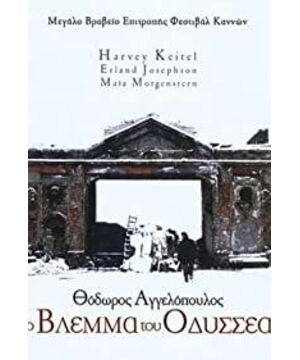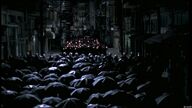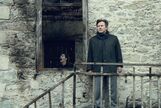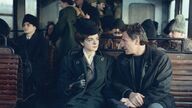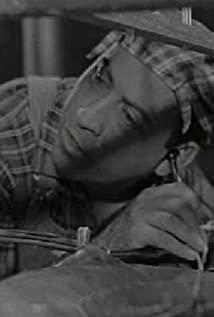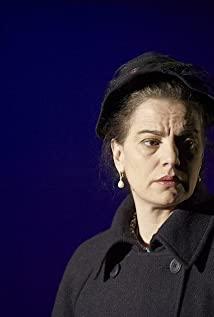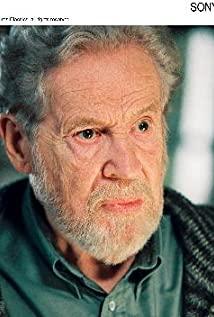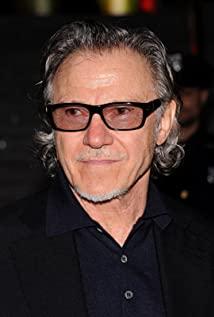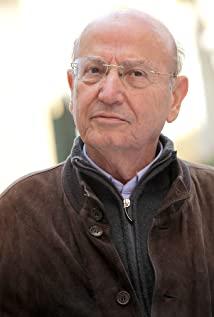If the soul wants to understand itself, then it must first look inward at itself.
——Plato "Meeting Drink" Καί ψυχή τί μελλει γνώστσθαι αύτην τις ψυξήν αύτη βλεμτέον –
Πλατων Άλξιβιαδης
-------------------------- υμπόριου 133 ----------------
In the domestic literary and youth circles, the name of Theo Angelopoulos (Theo Angelopoulos) is spreading widely along with the rise of the corresponding pirated discs . Type in "Angelopoulos" on Google, and you will see literary and artistic words such as "movie poet" and "thinking about life and soul". The sources include movie information websites, free download centers, cultural youth blogs, and movies. forum. Only a year ago, his movies were not easy to download from the Internet, and now VeryCD and BT have spread his seeds everywhere. In 1936, this new generation of European film masters, whose real name might have been translated as Sodoros Angelopoulos (Θοδωρος Αγγελοπουλος), was born in Athens. In his youth, he went to Paris to study theology, and then turned to film. This resume has a glorious and civilized background as a background, a vision of theological thinking, and an overseas study experience. His identity is in line with the conditions for self-examination of "the self as the other", which makes him have the possibility to speak for an entire nation with a single mouth.
I have not had time to watch "Landscape in the Mist", I just watched "Ulysses' Gaze" (Tο Βλεμμα του Οδυσσέα) and "Eternity and a Day" (Μια Αιωνιοτητα και Μια). Μερα). It is generally believed that the latter continues the motif of the former and repeats the concept of the former. My impression is similar to this. Of course, it is not a sin to continue the motif. Jung regards national myths and legends as the eternal motifs deep in the consciousness of a nation. Therefore, every nation with a long history cannot be denounced as a lazy worm. It is a good thing to keep repeating the motif to help establish an artistic brand. However, the retelling of the idea is a bit horrible. After all, a movie lasts for more than two hours. After a long time of tossing and discovering the same, the fans are not very happy to watch it. One possible reason is that Anzhe's "You" lost to Kusturica's "Underground" in Cannes in 1995, so he started to sharpen his sword for three years, and in 1998 he won with the more rounded "Forever" Golden Palm. But no matter what, "Yong" still successfully expresses many of the contents that he has not yet done in "You", and it is still qualified as an upgrade.
The Greek title of "Eu" means "Odyssey's Gaze", and Ulysses is an alias for Odyssey. The myth motif revealed by the title is the return of Odyssey in "Homer's Epic". It is not difficult to imagine that his gaze is bound to his hometown and his roots. At the beginning of the article, Plato’s sentence appeared at the beginning of "You", which has another meaning: the object of gaze is actually oneself. Both "Yu" and "Yong" tell a long journey to find roots. The journey of "Yu" is to find the earliest three-volume film that reflects life in the Balkans, while the journey of "Yong" goes one step further, looking for the Greek nation. language. Seeking cultural roots and deriving reflections, the grand story structure has gained a lot of extensibility in space and time.
On the dimension of space, An Zhe has done enough articles about the lens. Numerous long shots drag the narrative very slowly. These long shots are almost mid-to-long distances, which follow the characters' progress-walking, cars driving towards the border, or the barge in "You"-slowly. In front of the audience. In "Eu", the huge back of the shadowy bird of the Carpathian Mountains, the misty snow-capped mountains of the Balkans, and the extremely simple coasts that appear in the two films leave a deep impression on people. An Zhe's long shots are not so much advancing as they are patrolling. The quiet, silent but strong sense of ritual that contains power is the effect he deliberately created. The barge carrying the remnant of Lenin in "Eu" went down the river, and the residents rushed to the shore to stop and watch; in "Forever", the old poet visits his former housekeeper, just when her son is married, and is full of Greek style. In the wedding ceremony, the newlyweds danced gracefully, the band pulled the organ, and the onlookers were also silent. His lens is determined not to intervene, and he always looks far away tepidly, but these scenes with a sense of strange ritual clearly convey the subjectivity deep in the lens. In a sense, they are all dreamy, an idealistic state from the standpoint of characters.
In the dimension of time, An Zhe uses another label-style illusion technique. In "Eu", the protagonist dreams of returning to Bucharest in 1945, but the way to achieve it is not that the traditional figure closes his eyes and reappears yesterday, but that he suddenly meets his young mother on the train, but after catching up I followed her to fifty years ago. The connection between reality and the magic of the past was used by An Zhe so much. In "Forever", the old poet dreamed of returning to his youth and relive the happy years of the past with his dead wife. These magical scenes don't have much sense of ritual, but are more of a surprisingly pure pleasure, and they have repeatedly used the scenes of family gatherings. The past is always wonderful in our memories, so the subjectivity of these shots can also be imagined. The scenes of An Zhe that seem to have no emotions and stay out of the matter, in fact, all contain strong subjective feelings.
The director of Roots in "Eu" is in these misty and poetic long shots, in the magical remembrance of the past, quietly along the route of Athens, Bucharest, Sofia, Belgrade, and Sarajevo, walking through the flames of war. The Balkans are full of turmoil and contradictions. The dialogue of the characters has a poetic luster, melancholy and solemn, concise but worried, in the format of an oracle. "Greece is going to perish, but it is better to perish faster", "This is my city and everything to me. I can't understand why I have to fight and kill."...Different languages, different people collide, innocent People died of hatred, but different races still stubbornly organize open-air music performances in fog. This is the Balkan roots that "You" really found, turbulent, but stubborn. The story of "Yong" is more refined. A young poet who had lived in Italy and had forgotten the Greek language traveled all over Greece to buy words from the people in order to write a poem. The poem was not finished. The old poet Alexandra, who suffered from severe illness, embarked on his unfinished journey and wanted to continue writing it. On the way, he met a child who had immigrated from Albania and walked all the way. In the silent wilderness and the alienated city, they talked and sang poetically, continuing to write word by word. On this journey, the old poet magically dreamed back to the past, seeing his beloved wife and family members; and magically encountered a young poet who paid for words on the bus. Although the film's dialogue is too poetic, so that it can't help being somewhat hypocritical, it still very delicately realizes the visualization of "poetry"-the so-called poetry is to resist the erosion of life while pacing.
They are indeed two movies of the same structure, which are very suitable for people with a quiet mind. What I like about them is that every look at the wilderness in the mist, every magical connection, has a prophetic sense of history and destiny. You can't lose these things, your identity, language, family, and the things that make up your own three-dimensional memory once you are alive.
The soundtracks of both films are from Eleni Karaindrou (Ελενη Καραλνδρου), who has worked with Αγγελοπουλος for many years. The background music currently used in my space is the theme song of "Eternity and One Day"-if it can be opened.
-------------------------------
Original:http://blog.sina.com.cn/s/blog_6cd6c0510100m0o5.html
View more about Ulysses' Gaze reviews


